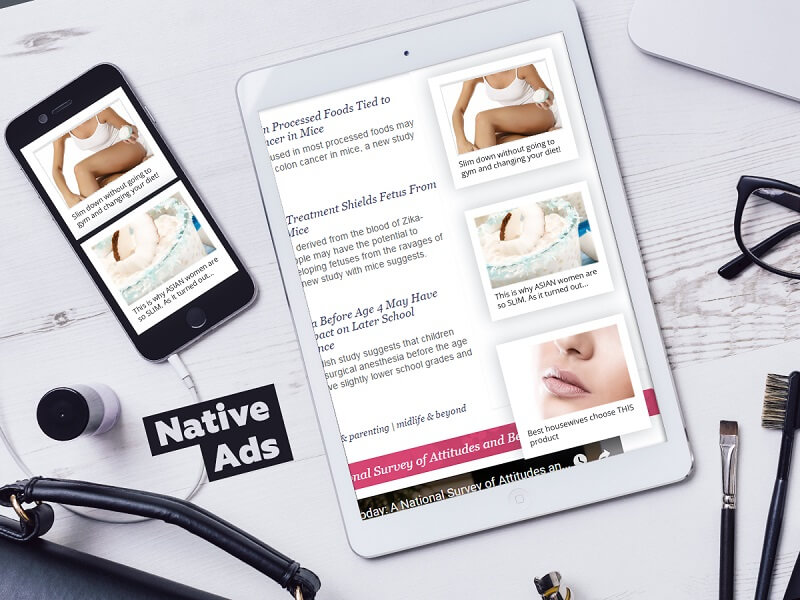
Psychology and Marketing: What drives us? One of the important roles of marketing is to develop good, mutually beneficial relationships with customers. But sometimes it’s hard to put it into practice, especially if you’re really trying to understand the tastes of your audience.
The subtlety of psychology in marketing
Psychology and marketing have always developed in close connection. Most marketing campaigns (at least the most successful ones) are based on a deep understanding of human behavior. This article reveals the factors influencing our choice. You will be able to apply this information to improve the efficiency of your online marketing.
What influences decision making?
The challenge is to encourage people to make decisions (or help them change their minds). There are many psychological studies that marketers are interested in because they focus on understanding the nature of decision making.
Making choices is a labor-intensive job. Below are the results of the research that proves it.
Mimicking – as a response to a failure to make a decision
You’ve probably noticed that the situation where you can’t make a choice forces you to look for clues to the right choices in other people’s behavior. Think about the following examples:
- Would you rather have a full restaurant than an empty one, even if you had to wait in line for an hour?
- Would you rather choose a product or service that has more reviews?
- Will you choose a subscription based on the number of subscribers?
This is a fairly well-known phenomenon, better known as “social proof”.
- Econsultancy cites research results that show that 61% of consumers read reviews before making a purchase.
- Last year’s TripAdvisor study showed that 71% of travelers do not book a hotel before they read other guests’ reviews.
Obviously, the elements of social evidence, such as reviews, ratings and testimonials, set up visitors positively and encourage them to make decisions, which has a positive impact on the development of your business. But social proof is not the only way we choose to make decisions.
We’re always looking for the easiest solution
It turns out that we are also inclined to make a standard choice (even if this choice assumes that we usually choose), instead of stopping, thinking and making an informed decision.
Studies have been conducted showing that when we are under pressure, we are unable to make a decision, we close down and make a standard, essentially imposed choice. For a marketer, this means that sometimes the easiest way to convince someone to agree with you is to provide them with such a standard choice.
A classic example is a subscription to a newsletter at the end of an order form or a proposal to install an additional set of utilities when installing the program.
Being in a condition of stress from all this process, the majority of buyers will pass these variants, having made a standard choice (that in the first case means the unconscious consent to registration of mailing list, and in the second case – installation of unnecessary utilities).
The plethora of elections leads us to a hangover.
Similarly, when there are several elections before us, we “hang out” and often choose at random, just to get out of the situation.
Sometimes offering several options is not the best marketing move. For example, several subscription options can confuse a potential subscriber. It is better to create a situation where you can make a decision for your customers.
In the figure above we can see the Economist subscription process.
- Online subscription costs $59
- Printed subscription costs $125.
- Online + print costs also $125
There’s an 84% chance of choosing an online + print subscription. Further on, only online subscription is popular, and then only print subscription.

At first, it may seem that including only print subscription is a pointless idea, but as it turned out, without it online + print subscription does not look so attractive. After all, an abundance of elections is not always good. It’s best to choose for the buyer and make an offer they can’t refuse.
The tempting offer makes us change our mind
As we continue to talk about offers that are difficult to refuse, we find that such offers can encourage us to quickly change our minds. This is also possible in situations where we have previously held a firm position.
In 2013, we conducted a study that showed that regardless of our brand loyalty, a tempting offer can encourage us to choose another brand. This means that such offers can encourage people to take the action you need on the website.
This offer can be a discount or sale.
- A visitor who goes to the site through a lead-magnet (a proposal that promises a quick solution to the problem) may force the visitor to register on the site. The information collected in this way will help you learn more about the people interested in your product.
- It is also good to offer visitors to answer a few questions from the questionnaire in return for a discount, etc.
But what’s a tempting offer?
First, there must be a clear promise. Your visitors shouldn’t think about how they’ll benefit.
Second, the promise should show you how to solve your audience’s most pressing problems.
And thirdly, the value of such a promise must exceed its price.
We give in to the opinion of the authorities
When we make a choice or consider the next step, we tend to follow the views of those we believe to be the authority. It is also important to understand the nature of the things that underpin our image of authority.
These things, or signs, may include
- Service position.
- Expensive clothes.
- Having an expensive car, home, etc.
People tend to believe what they see. If people believe that you are successful, then in their eyes you really become so. From here you can make a conclusion that a good view always pays off.
When it comes to online marketing, these are the number of subscribers, previous publications on major sites, etc. These signs make us take action based on the recommendation of the authority.
Many experiments have confirmed the correctness of the fact that we tend to go out of their own comfort zone.
These signs force us to respect and obey those people whom we would not otherwise consider to be authorities. Therefore, to improve the efficiency of your marketing activities, you need to develop a set of authoritative attributes that will be accessible to your audience.
